Coping with a cancer diagnosis: An oncologist speaks
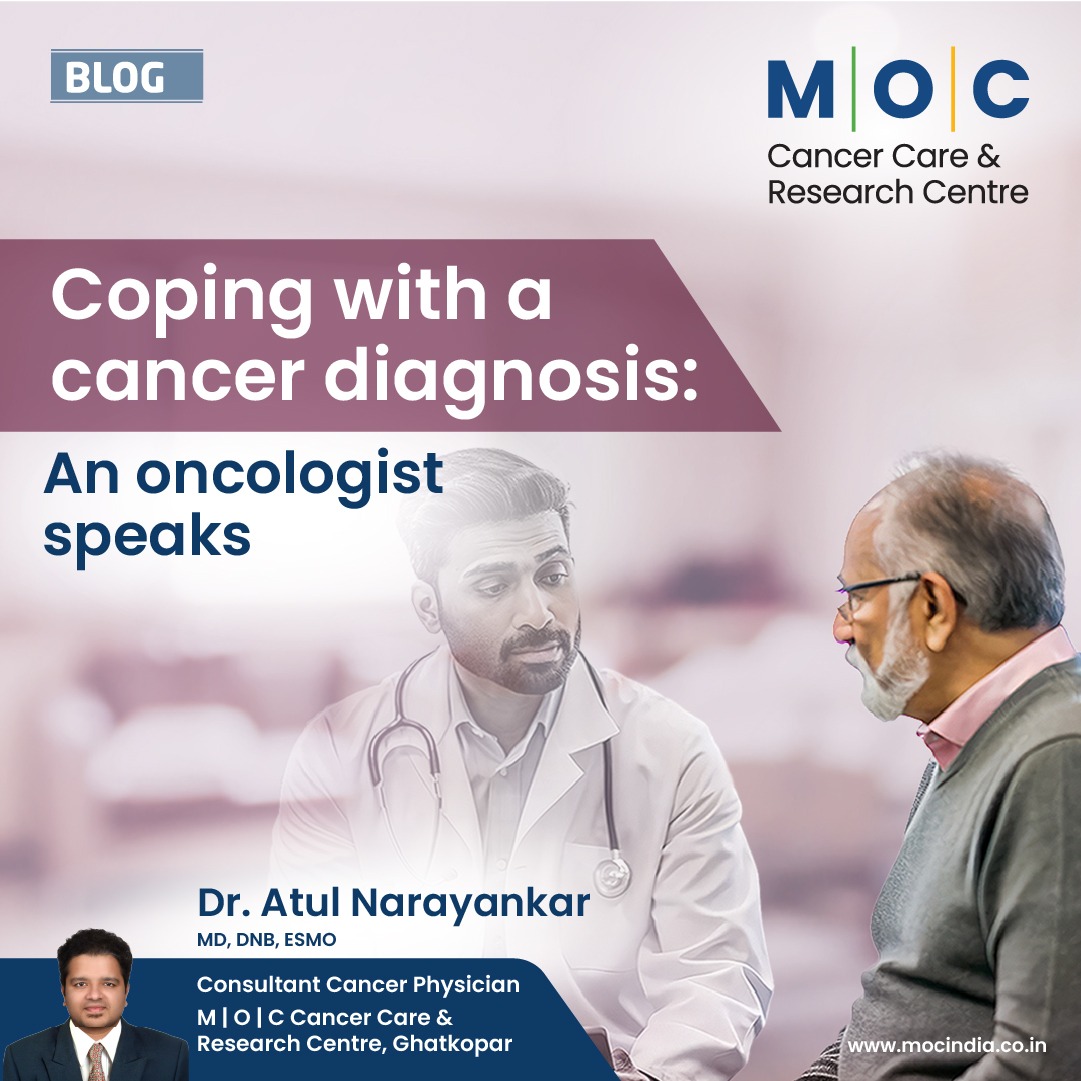


Every time I sit across from a patient to reveal the news of a cancer diagnosis, I’m reminded of the immense courage it takes to face the unknown. No matter how many times I’ve delivered this news, I know that for each individual, this moment is life-changing.
Over the years, I have witnessed a remarkable range of reactions- some patients are stoic, others are visibly shaken, some remain blank, and many simply ask, “What happens next?”
As an oncologist, my role extends far beyond prescribing treatments; it’s about guiding people through uncertainty of this condition, helping them find their footing, and supporting them as they discover their own strength.
Through my experiences with patients and survivors, I’ve learned valuable lessons about coping, resilience, and hope—lessons I want to share with anyone beginning this journey. Here are some tips that every patient and family can use to cope with a cancer diagnosis.
Allow Yourself to Feel the Initial Shock
When I deliver a cancer diagnosis, the shock, fear, and disbelief is very apparent. Many patients feel overwhelmed, and that’s entirely normal. I always encourage my patients to give themselves permission to feel whatever arises—anger, sadness, confusion, or even numbness. Suppressing these emotions rarely helps; acknowledging and accepting them is the first step toward healing.
Access The Power of Information
One of the most effective ways I’ve seen patients regain a sense of control is by becoming informed. I urge my patients to ask questions, seek clarity, and understand their diagnosis and treatment options. In my experience, patients who are well-informed tend to feel less anxious and more empowered. I recommend bringing a loved one to appointments to help absorb information and provide emotional support.
Build a Support Network
Cancer is not a battle to be fought alone. I have seen the difference that support from family, friends, and fellow patients can make. Some of my patients find comfort in various support groups. These are safe spaces where cancer patients can share experiences and receive advice. Others lean on their families or faith communities. I always remind patients that accepting help is a sign of strength, not weakness.
Care for Your Body
Treatment can be physically demanding, but self-care remains crucial. I advise my patients to focus on nutrition, gentle physical activity, and adequate rest. Even small efforts, like short walks or light stretching, can improve mood and energy levels. I also stress the importance of reporting any side effects or new symptoms promptly so we can address them together.
Take Steps to Manage Stress and Emotions
Cancer affects not just the body, but also the mind and spirit. Many of my patients benefit from mindfulness practices such as meditation, deep breathing, or yoga. Others find solace in creative outlets or spiritual practices. When emotional distress becomes overwhelming, I refer patients to counsellors or psychologists who specialise in oncology.
Open the Lines of Communication
Honest, ongoing communication is the cornerstone of effective cancer care. I encourage my patients to voice their concerns, fears, and preferences. This dialogue helps us tailor treatment plans and ensures that patients feel heard and respected.
Find Hope and Meaning
Perhaps the most inspiring aspect of my work is witnessing how patients discover hope, resilience, and even personal growth through their cancer journey. Advances in medicine continue to improve outcomes, and countless survivors go on to lead fulfilling lives. I have learned that hope is not just wishful thinking- it is a powerful force that sustains patients and families alike. Hope can be found in the strength of a loved one, through spirituality, a supportive community and just simply the will to overcome this challenging disease.
While the path through cancer is rarely straightforward, I have seen time and again that people are capable of extraordinary resilience. The journey is filled with both challenges and unexpected moments of grace—acts of kindness, newfound perspectives, and deepened connections. If you or a loved one is facing a cancer diagnosis, know that you are not defined by this disease. There is support, guidance, and hope available at every step.
As your oncologist, my commitment is to walk beside you, helping you go through the complexities and celebrate every victory, no matter how small. Remember, you are not alone on this path, and together, we can move forward with courage and hope.
Dr. Atul S. Narayankar
MD DNB
Consultant Cancer Physician
MOC Cancer Care & Research Centre, Ghatkopar.
Latest Blogs
-
![Nidar Naari is a movement initiated by M|O|C Cancer Care & Research Centre]()
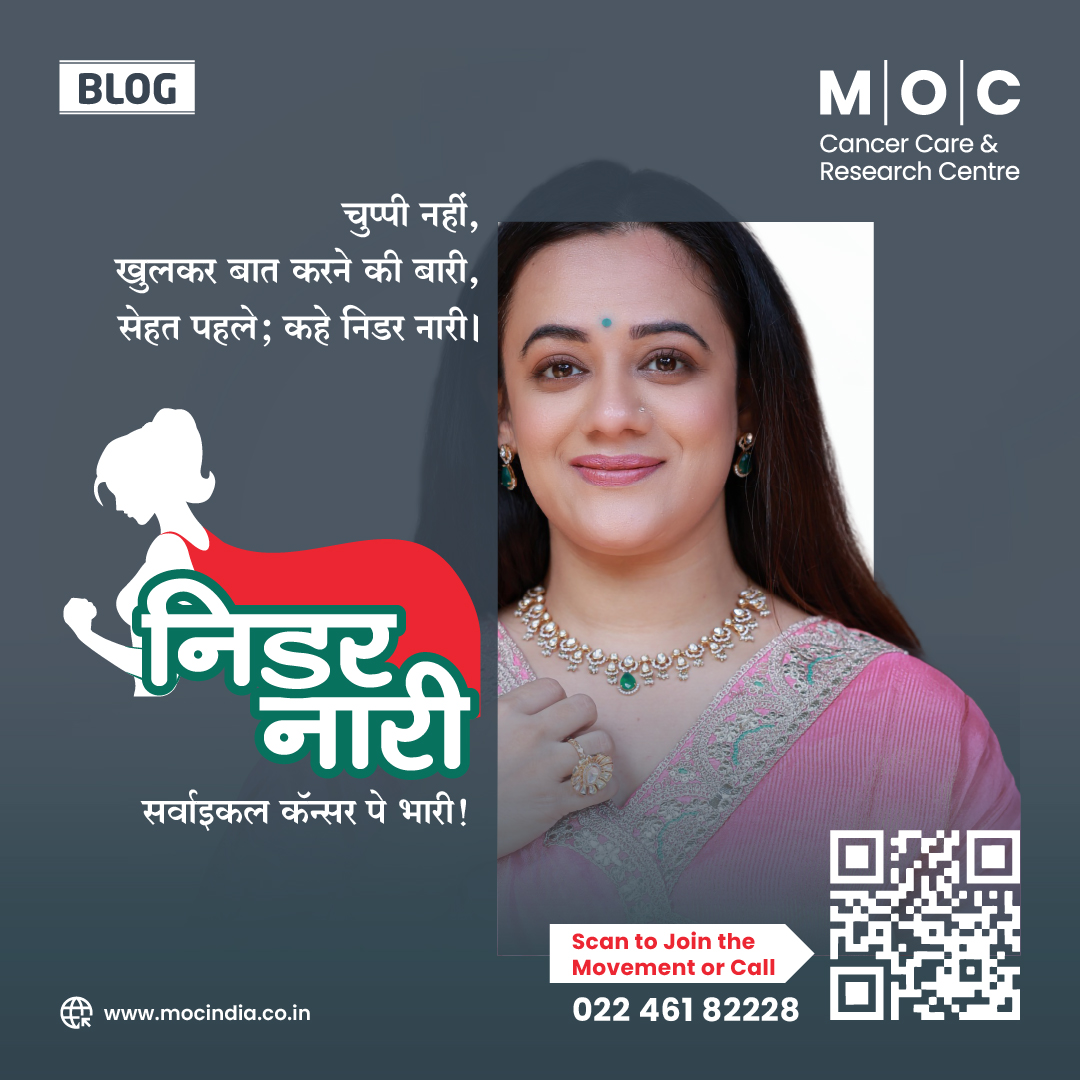
- 10th Feb, 2026
- Nidar Naari is a movement initiated by M|O|C Cancer Care & Research Centre
-
![Cervical Cancer Awareness Month- January 2026]()
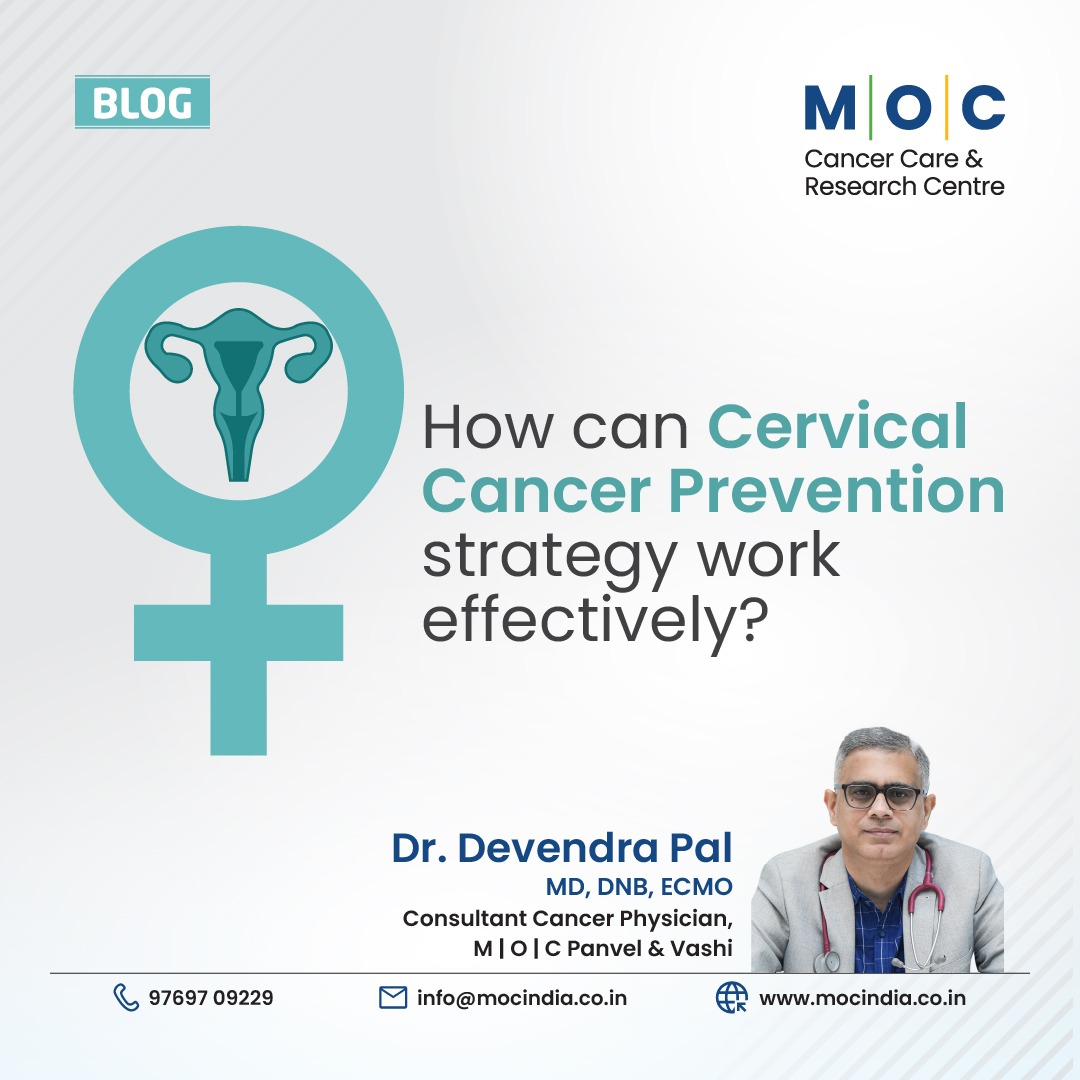
- 23rd Jan, 2026
- Cervical Cancer Awareness Month- January 2026
-
![Why Vaccinating Boys Against HPV is a Win for Everyone ?]()
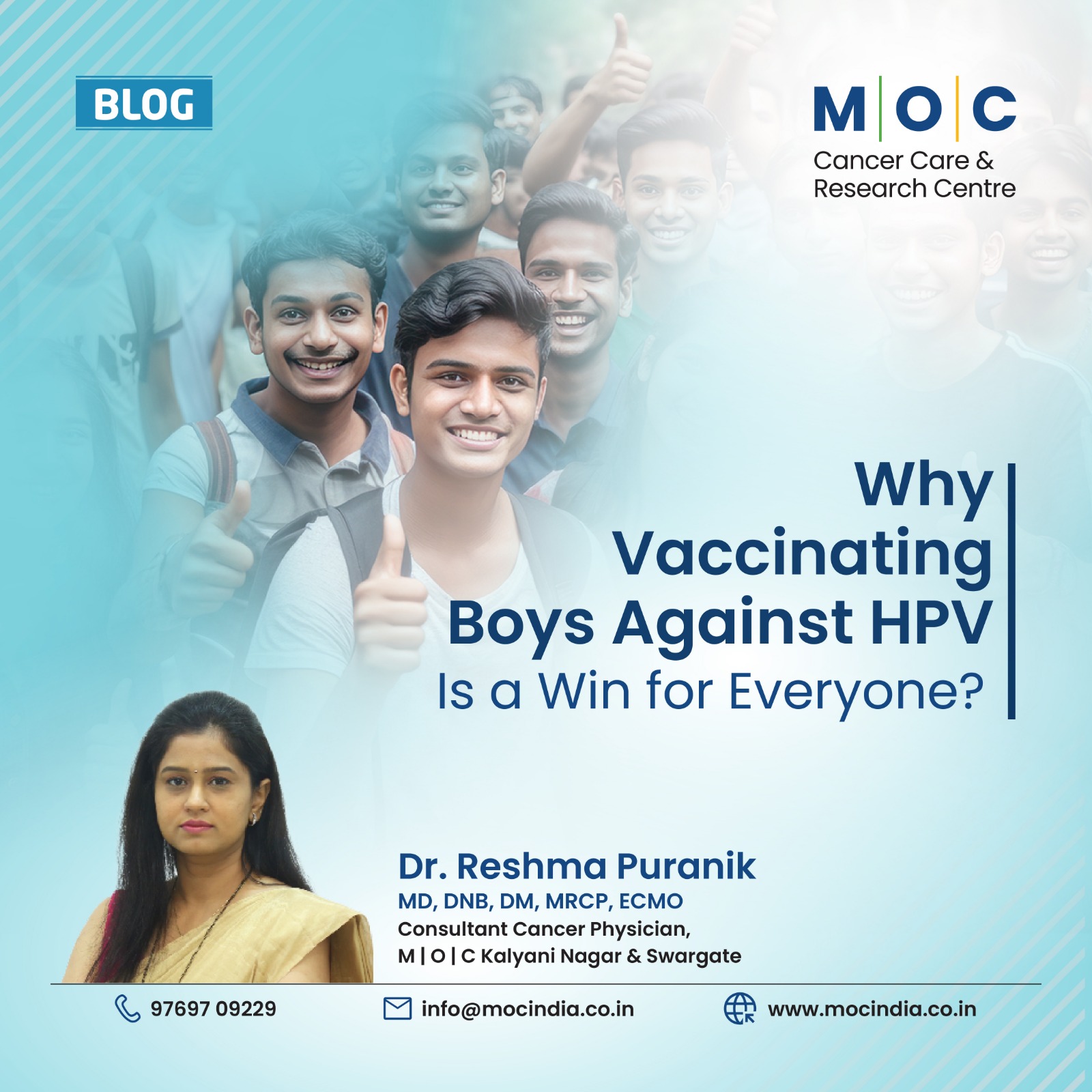
- 20th Jan, 2026
- Why Vaccinating Boys Against HPV is a Win for Everyone ?
-
![Are Pollution and Chemical Exposure Driving the Rise of Blood Cancer Cases in Children?]()

- 17th Jan, 2026
- Are Pollution and Chemical Exposure Driving the Rise of Blood Cancer Cases in Children?
-
![Significant Advancements in Cancer Treatment in 2025- Dr Kunal Jobanputra- M|O|C Kemps Corner and Mahim]()
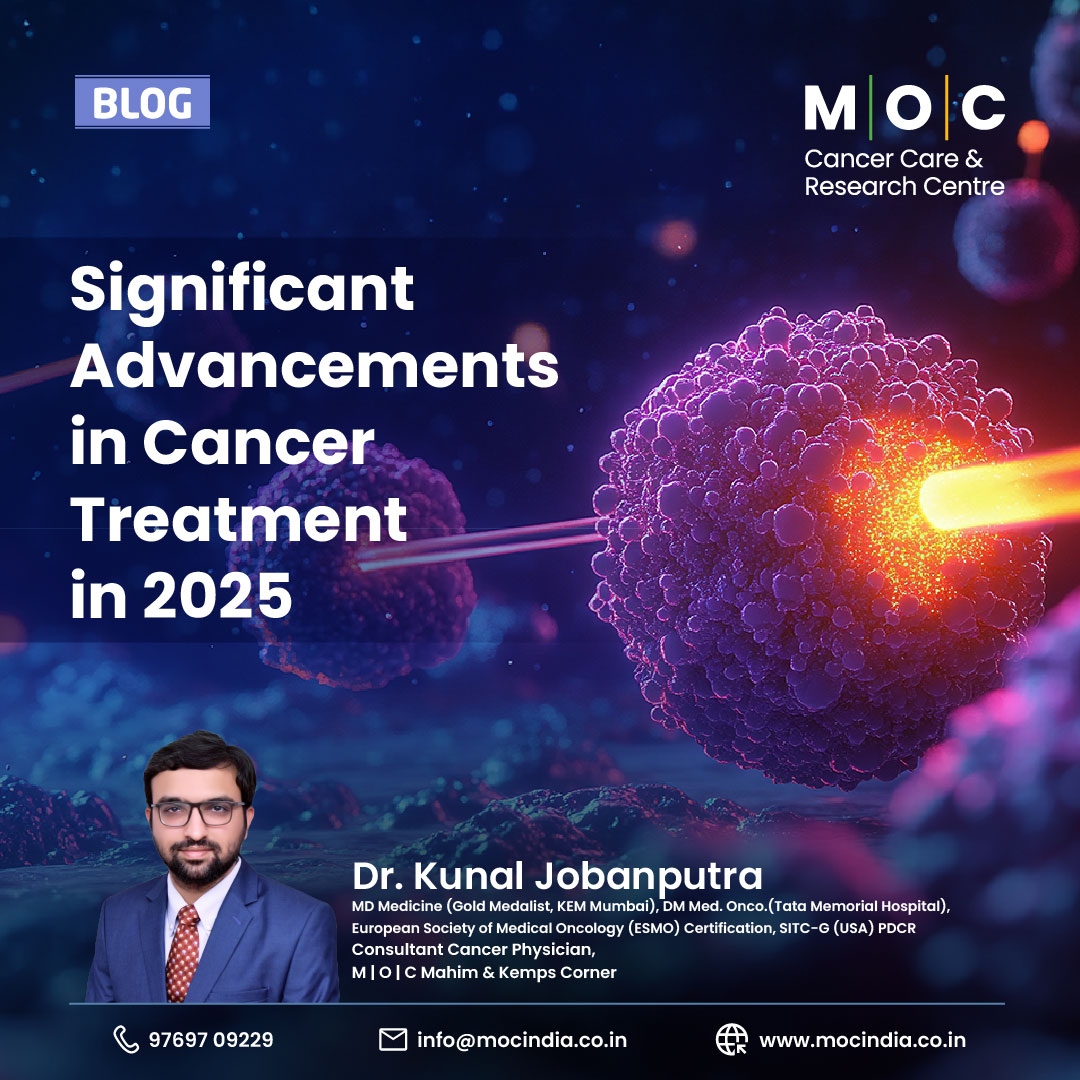
- 12th Jan, 2026
- Significant Advancements in Cancer Treatment in 2025- Dr Kunal Jobanputra- M|O|C Kemps Corner and Mahim
-
![Managing sleep disturbances during and after cancer treatment]()

- 11th Dec, 2025
- Managing sleep disturbances during and after cancer treatment
Book Your Appointment








